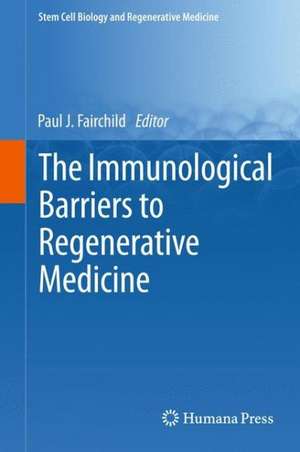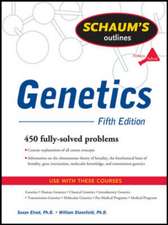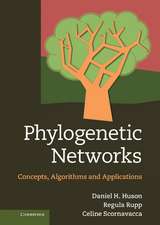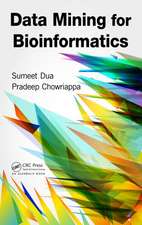The Immunological Barriers to Regenerative Medicine: Stem Cell Biology and Regenerative Medicine
Editat de Paul J. Fairchilden Limba Engleză Paperback – 9 noi 2014
| Toate formatele și edițiile | Preț | Express |
|---|---|---|
| Paperback (1) | 940.07 lei 6-8 săpt. | |
| Springer – 9 noi 2014 | 940.07 lei 6-8 săpt. | |
| Hardback (1) | 1212.98 lei 6-8 săpt. | |
| Springer – 17 oct 2012 | 1212.98 lei 6-8 săpt. |
Din seria Stem Cell Biology and Regenerative Medicine
- 15%
 Preț: 630.91 lei
Preț: 630.91 lei - 18%
 Preț: 625.04 lei
Preț: 625.04 lei - 18%
 Preț: 951.01 lei
Preț: 951.01 lei - 18%
 Preț: 882.49 lei
Preț: 882.49 lei - 18%
 Preț: 1103.61 lei
Preț: 1103.61 lei - 18%
 Preț: 1099.74 lei
Preț: 1099.74 lei - 18%
 Preț: 1545.14 lei
Preț: 1545.14 lei - 18%
 Preț: 1213.29 lei
Preț: 1213.29 lei - 18%
 Preț: 1271.25 lei
Preț: 1271.25 lei - 18%
 Preț: 941.62 lei
Preț: 941.62 lei - 18%
 Preț: 1270.80 lei
Preț: 1270.80 lei - 5%
 Preț: 773.42 lei
Preț: 773.42 lei - 18%
 Preț: 1268.59 lei
Preț: 1268.59 lei - 18%
 Preț: 940.38 lei
Preț: 940.38 lei - 18%
 Preț: 942.54 lei
Preț: 942.54 lei - 18%
 Preț: 944.27 lei
Preț: 944.27 lei - 18%
 Preț: 946.62 lei
Preț: 946.62 lei - 15%
 Preț: 686.04 lei
Preț: 686.04 lei - 18%
 Preț: 1211.73 lei
Preț: 1211.73 lei - 18%
 Preț: 949.77 lei
Preț: 949.77 lei - 15%
 Preț: 638.42 lei
Preț: 638.42 lei - 18%
 Preț: 1220.82 lei
Preț: 1220.82 lei - 15%
 Preț: 688.61 lei
Preț: 688.61 lei - 18%
 Preț: 938.03 lei
Preț: 938.03 lei - 15%
 Preț: 687.65 lei
Preț: 687.65 lei - 18%
 Preț: 1212.98 lei
Preț: 1212.98 lei - 15%
 Preț: 691.05 lei
Preț: 691.05 lei - 18%
 Preț: 952.92 lei
Preț: 952.92 lei - 18%
 Preț: 947.65 lei
Preț: 947.65 lei - 18%
 Preț: 1370.26 lei
Preț: 1370.26 lei - 15%
 Preț: 678.80 lei
Preț: 678.80 lei - 15%
 Preț: 637.13 lei
Preț: 637.13 lei - 18%
 Preț: 1823.86 lei
Preț: 1823.86 lei - 15%
 Preț: 641.36 lei
Preț: 641.36 lei - 18%
 Preț: 1110.36 lei
Preț: 1110.36 lei - 5%
 Preț: 771.82 lei
Preț: 771.82 lei - 18%
 Preț: 1212.98 lei
Preț: 1212.98 lei - 18%
 Preț: 1232.56 lei
Preț: 1232.56 lei
Preț: 940.07 lei
Preț vechi: 1146.42 lei
-18% Nou
Puncte Express: 1410
Preț estimativ în valută:
179.96€ • 185.08$ • 149.30£
179.96€ • 185.08$ • 149.30£
Carte tipărită la comandă
Livrare economică 19 februarie-05 martie
Preluare comenzi: 021 569.72.76
Specificații
ISBN-13: 9781489999320
ISBN-10: 1489999329
Pagini: 348
Ilustrații: XIV, 334 p.
Dimensiuni: 155 x 235 x 18 mm
Greutate: 0.49 kg
Ediția:2013
Editura: Springer
Colecția Humana
Seria Stem Cell Biology and Regenerative Medicine
Locul publicării:New York, NY, United States
ISBN-10: 1489999329
Pagini: 348
Ilustrații: XIV, 334 p.
Dimensiuni: 155 x 235 x 18 mm
Greutate: 0.49 kg
Ediția:2013
Editura: Springer
Colecția Humana
Seria Stem Cell Biology and Regenerative Medicine
Locul publicării:New York, NY, United States
Public țintă
Professional/practitionerCuprins
Mechanisms of Immune Rejection of Stem Cell-Derived Tissues: Insights from Organ Transplantation.- The Immunogenicity of ES Cells and their Progeny.- Interaction of Embryonic Stem Cells with the Immune System.- The Role of NK cells and T Cells in the Rejection of Embryonic Stem Cell-Derived Tissues.- Mitigating the Risks of Immunogenicity in the Pursuit of Induced Pluripotency.- Thymic Involution: A Barrier or Opportunity for Cell Replacement Therapy?.- Construction of Stem Cell Banks: Prospects for Tissue Matching.- Generation of Histocompatible Tissues via Parthenogenesis.- Prospects for Designing ‘Universal’ Stem Cell Lines.- The Immunosuppressive Properties of Adult Stem Cells: MSC as a Case Study.- The Immunogenicity of Stem Cells and Thymus-Based Strategies to Minimise Immune Rejection.- The Induction of Mixed Chimerism Using ES Cell-Derived Hematopoietic Stem Cells.- Prospects for the Induction of Transplant Tolerance Using Dendritic Cells.- Strategies for the Induction of Tolerance with Monoclonal Antibodies.- Induction of Immunological Tolerance to Transgene Products.- Addressing the Challenge of Autoimmunity in the Treatment of Diabetes with Stem Cells.
Notă biografică
Dr. Paul Fairchild began his research career in Oxford, where he studied for a doctorate within the Nuffield Department of Surgical Sciences, where his research focused on the immune response to organ allografts. After spending five years as a post-doctoral fellow investigating the etiology of autoimmune disease in the Department of Pathology, University of Cambridge, he returned to Oxford, where he is currently a University Lecturer in Pre-clinical Medicine within the Sir William Dunn School of Pathology and a Fellow of Trinity College. In 2008, Paul Fairchild founded the Oxford Stem Cell Institute (OSCI), for which he currently serves as Co-Director. As a highly interdisciplinary organization, the OSCI focuses on exploiting the properties of stem cells for the treatment of some of the most intractable chronic and degenerative diseases. It is within this context that he continues to apply his background in transplantation immunology, in order to investigate the nature of the immune response to tissues differentiated from pluripotent stem cells, and develop approaches to the induction and maintenance of immunological tolerance.
Textul de pe ultima copertă
Recent years have witnessed numerous advances in stem cell research that have suggested novel strategies for the treatment of the chronic and regenerative diseases that pose a growing challenge to the provision of healthcare in the 21st century. Nevertheless, there is little doubt that related disciplines have failed to keep pace with such developments, of which the immunology of transplant rejection is perhaps the most relevant to the nascent field of regenerative medicine. Indeed, given that after decades of research into the mechanisms of organ allograft rejection, we remain wholly dependent on immune suppression to ensure acceptance of foreign tissues, we might legitimately ask whether there is any reason why tissues differentiated from stem cells might not suffer the same fate. This volume seeks to address this issue by drawing on the principles of alloantigen recognition to assess the validity of early convictions that embryonic stem cell-derived tissues may prove invisible to the immune system of the host and the more recent belief that induced pluripotent stem cells, derived in a fully autologous manner, will circumvent the issue of immunogenicity. Having debunked such assumptions and established the magnitude of the immunological barriers to be overcome, this book then draws on the expertise of internationally-recognised laboratories around the world to provide a critical assessment of the likely success of applying strategies such as stem cell banking, silencing of genes that confer immunogenicity, and the induction of transplantation tolerance to overcoming the immunological barriers in the future. Indeed, it is only through reaching a consensus in the field that enduring solutions to such an intractable problem may ultimately emerge.
Caracteristici
Explores the extent to which the principles of allograft rejection, learned over several decades from our experiences of whole organ transplantation, apply within the unique context of cell replacement therapy Discusses various innovative ways of addressing the issues of immunogenicity Focuses exclusively on the induction of immunological tolerance through a variety of novel approaches Includes supplementary material: sn.pub/extras











